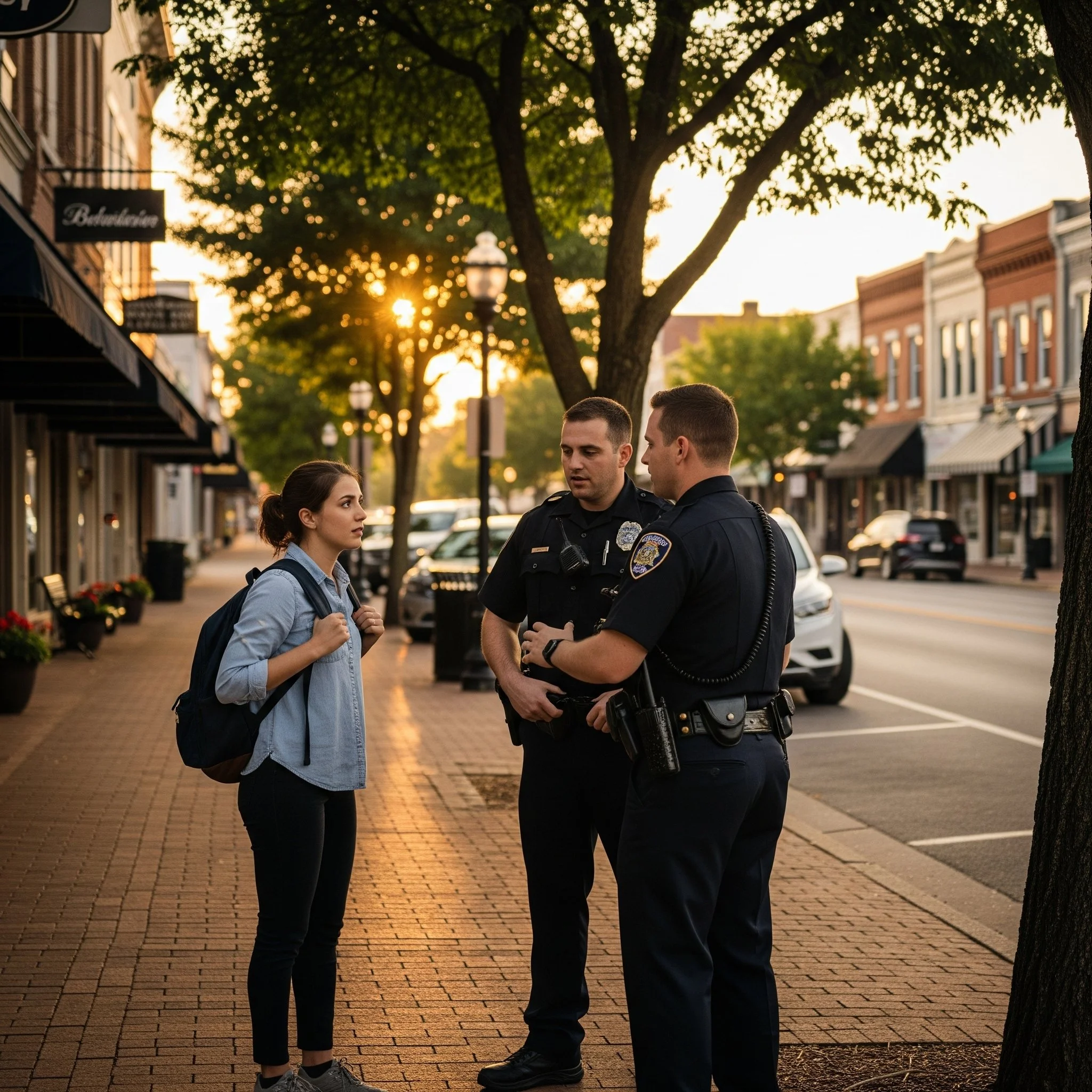What are the primary differences between robbery, burglary, and larceny? It comes down to whether the victim of the crime was present at the time of the burglary or the larceny. These terms are wrongly used interchangeably but are not the same crimes and have different legal consequences.
Robbery in Oklahoma
If you are accused of robbery, there could be very significant penalties at stake. While most theft crimes are considered property crimes, robbery is considered a violent crime against the person. Depending on the type of robbery with which you are charged, you could be facing up to life in prison.
What is Robbery?
Someone who discovers their property missing may say they have been “robbed.” This is actually larceny or burglary. While larceny and burglary generally depend upon stealth, robbery is about the force or fear used to commit the crime. Robbery is defined by Oklahoma law as “a wrongful taking of personal property in the possession of another, from his person or immediate presence, and against his will, accomplished by means of force or fear” (21 O.S. § 791). The state divides robbery into several classifications, including first degree, second degree, conjoint, and armed robbery.
First Degree Robbery
Defined in 21 O.S. § 797, first degree robbery occurs under one or more of four specific circumstances:
1. inflicts serious bodily injury upon the person;
2. threatens a person with immediate serious bodily injury;
3. intentionally puts a person in fear of immediate serious bodily injury; or
4. commits or threatens to commit a felony upon the person.
First degree robbery is a felony punishable by a minimum of 10 years in prison. It is also an “85 percent crime,” under O.S. 21 § 13.1, a person convicted of this crime must to serve a minimum of 85 percent of the sentence before the possibility of parole. With that said, there is case law that brings the minimum down to 5 years, but judicial notice should be invoked.
Second Degree Robbery
Second degree robbery does not carry the same requirement that the force results in serious bodily injury or that the fear is the intentional threat of serious bodily injury. Second degree robbery is a lesser offense than first degree robbery, and it is not an “85 percent crime”. Robbery in the second degree brings a possible sentence of up to 10 years in prison.
Conjoint Robbery
Conjoint robbery, or robbery committed by two or more people conspiring or acting together to accomplish the robbery is a serious felony where each person involved faces 5 to 50 years in prison. Like first degree robbery, conjoint robbery is an “85 percent crime”.
Armed Robbery
Robbery or attempted robbery with a dangerous weapon or imitation firearm (21 O.S. § 801) carries a minimum sentence of 5 years in prison. It is important to note that this law also includes failed attempts. It does not matter if the gun was not loaded, or even if the “firearm” used was a fake. Because the motive behind the use of an unloaded or imitation gun is still “force or fear,” it is considered armed robbery even with a toy gun. Robbery or attempted robbery with a dangerous weapon or imitation firearm is an “85 percent crime”.
Robbery is a Serious Felony
Robbery charges are very serious and the DA’s office prosecutes these cases aggressively. You or your loved one could be facing decades in prison, mandatory minimum sentencing, and even registration with law enforcement for placement on the Oklahoma Violent Offender Registry. Call us today at 918-884-7791 to discuss how we can defend you or your loved one from a Robbery charge.
The Police Can Lie to You
The law allows a police officer to use deception in an investigation. This means that during an interview by police, they can make false claims about what witnesses have seen or evidence they have recovered. They can say just about anything they want in order to get a confession as long as the deception does not result in what would be considered coercion sufficient to make someone confess to a crime they did not commit. Let’s be clear, this means that they can get away with almost any lie just short of telling you a loved one has died.
For instance, a detective might tell a burglary suspect that they have a witness who saw them enter a house, or that they found the suspects fingerprints inside the house. If the suspect knows he had never been in the house, then you might think there is little chance of getting a confession. But, recent studies have shown that suspects often confess to crimes they did not commit under the false impression that cooperating, even by admitting to something they did not do, will benefit them in the long-term, only to realize that they have created far greater problems for themselves.
Here is another example of how this might play out: A detective might tell a woman that her children will be taken from her and placed into foster care if she does not confess to a crime. The threat of losing her children is sufficient to make some people admit to doing something they didn't do. This borders on coercion, but once you have confessed it is hard to put that genie back in the bottle, because the police will begin to look through your life with a fine tooth comb trying to find anything to corroborate the confession they believe they just got. Also, the confession will be used against her in any hearings to take away her children.
Should police be allowed to blatantly lie to suspects? On the one hand, it is a very persuasive and efficient method to motivate a guilty person into confessing. It would also seem that an innocent person would see through these lies and quit talking to the police immediately. On the other hand, people who have something to fear can be intimidated and potentially pressured into confessing to something they did not do. This is especially true of non-residents without papers, people with difficulty speaking English, and those who have little or no education.
What should you do? If the police are interviewing you, they probably are looking at you as a suspect. Politely tell them you have nothing to say, and that you want an attorney.


